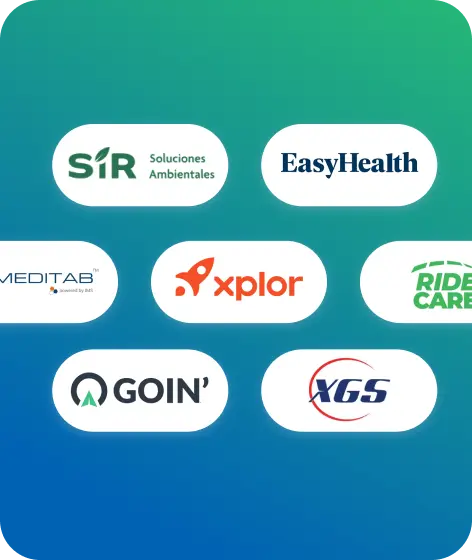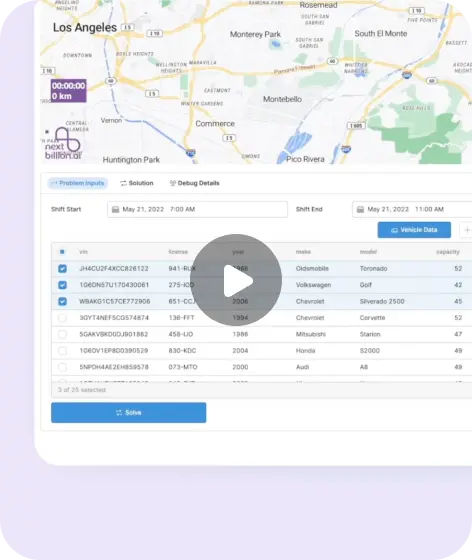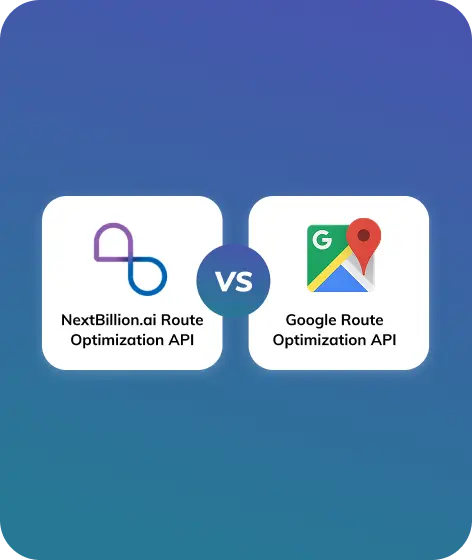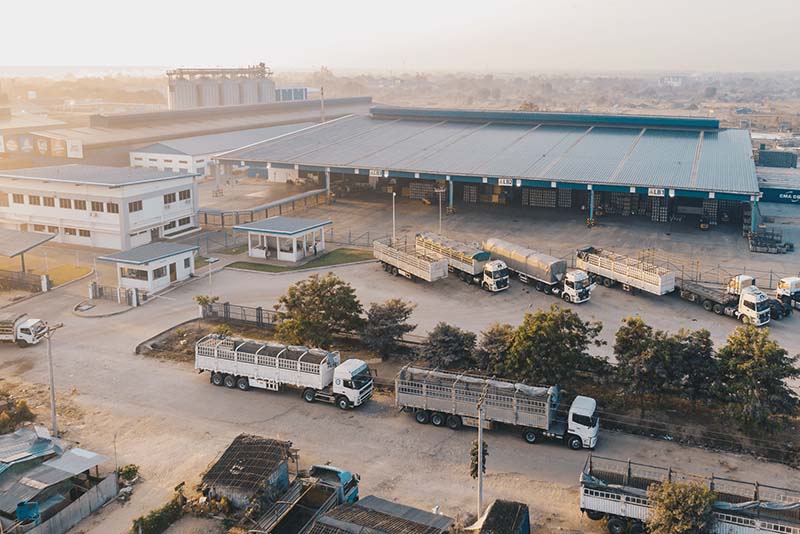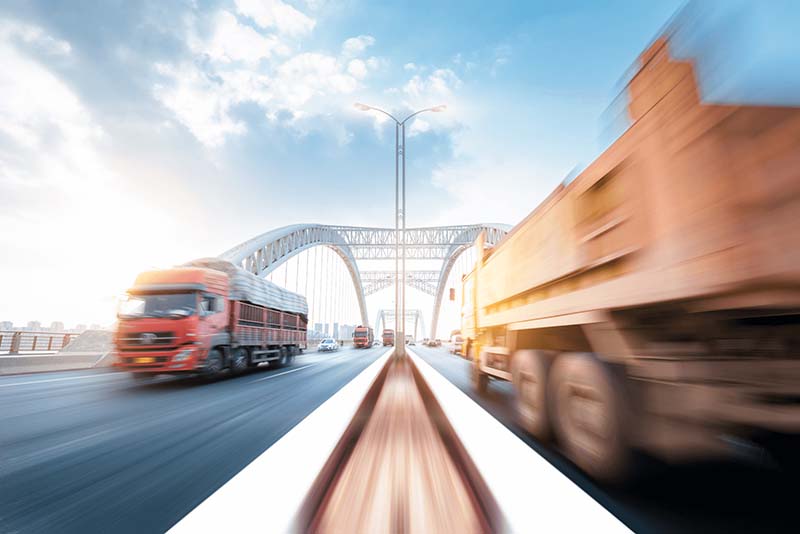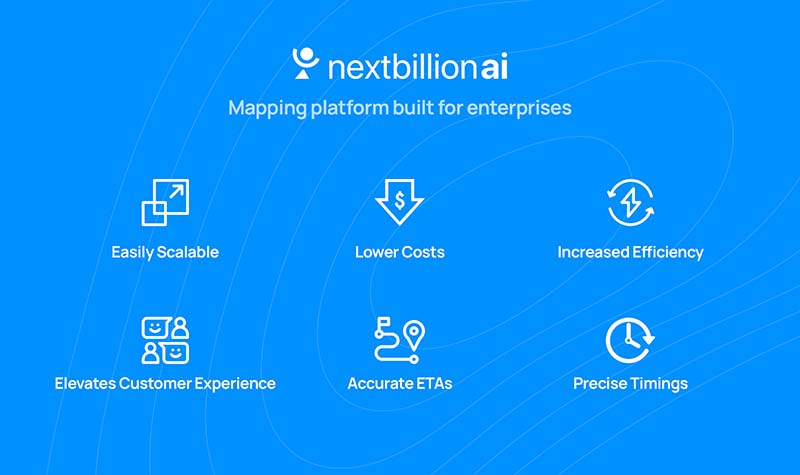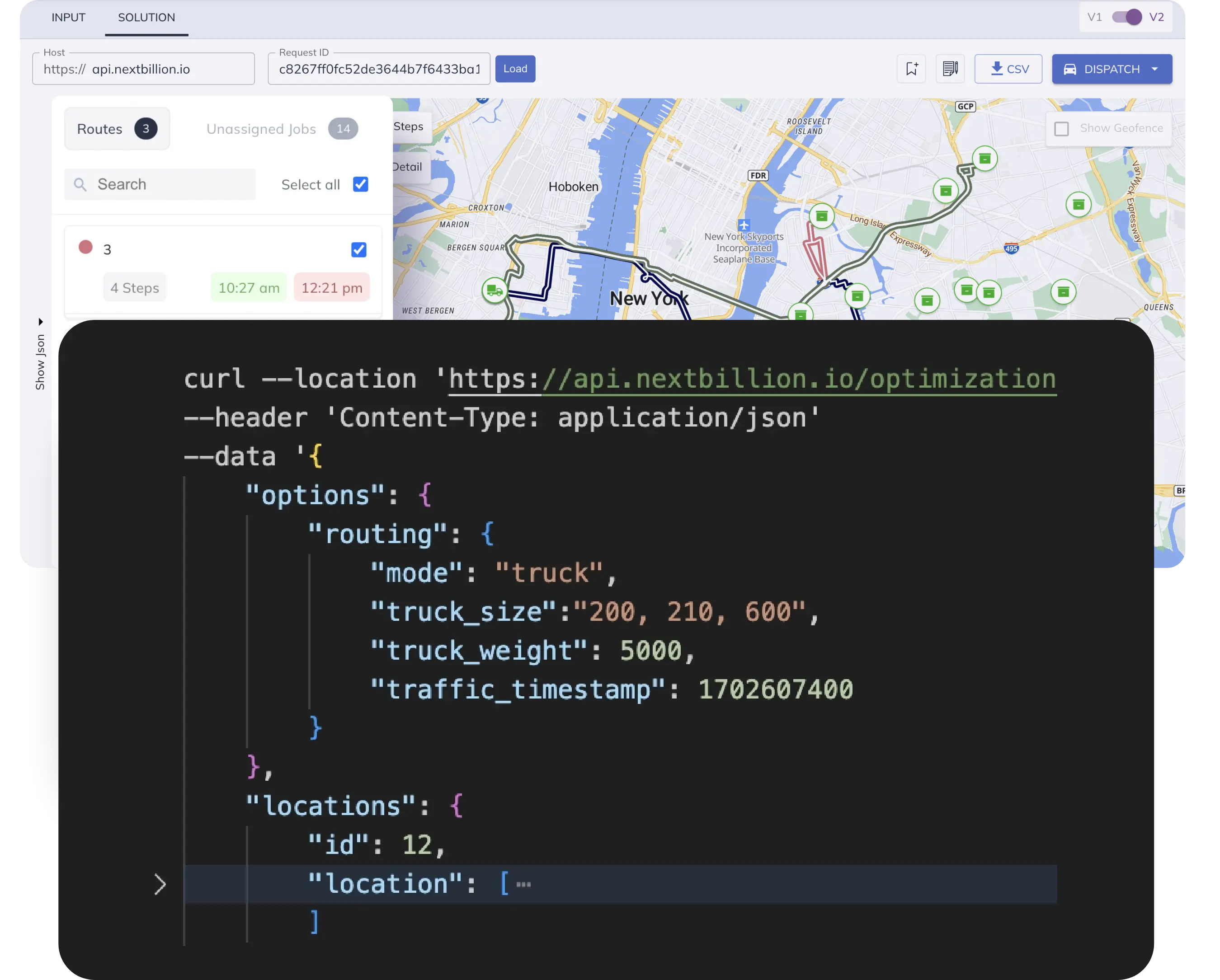The Problem
A leading Indian logistics tech company, renowned as the country’s largest neutral freight network, approached us for a bespoke mapping solution that could provide an intuitive freight tracking experience for their customers. Operating in a complex industry with low tech adoption at different levels, they had two primary challenges:
1. Tracking thousands of data points
Each journey included a number of variables, such as:
- Accurate routing across highways, country roads, and warehouse locations
- Traffic data across cities and states
- Setting up contextual POIs, such as loading/unloading stops, in-transit points, fueling, and weigh stations
- Additional data such as tire wear-and-tear, vehicle utilization, tolls, and permits
These numerous data points were also managed by different stakeholders in the freight value chain, which caused significant operations challenges.
2. Accounting for local nuances
The need to account for local nuances like vehicle restrictions & driving behavior is a big challenge in a country like India - where the rules and entry/exit allowances for truck movements across state borders vary tremendously from state to state. Some other complications include:
- Type of vehicle
- Changing topographies
- Driving patterns
- Speed limit depending on the cargo
Our Approach
Our process started with analyzing the company’s historical freight and navigational data, and running it through our machine learning models. This process gave us valuable insights into how nuanced the problem actually was.
- The recommended ETAs were suboptimal at best because they didn’t account for factors such as the driving behavior for long-haul journeys, stops along the way, tolls, and more. As a result, the actual route taken by drivers could vary greatly.
- The suboptimal ETAs had a direct impact on freight turnaround times, which resulted in exacerbated times for loading, unloading, and in-transit.
- Even at the warehouse locations, there was a difference between knowing a location’s coordinates versus knowing how to reach it. That’s because the same location could have multiple points of entry/exit depending on the vehicle type and use case.
Our Solution
The insights that our mapping AI gave helped our experts create a custom solution that could keep up with the challenges of the logistics industry while helping our client thrive. The blended-AI approach helped the client efficiently tackle local conditions, unstructured addresses, varied vehicle types, and unique driving behaviors, helping their solution make informed predictions of the route likely to be taken by drivers and the corresponding ETAs.
With this, we crafted a 5-step approach:
1. Map Data Curation
We reviewed the map data available on OSM, added missing roads with the help of satellite imagery, and updated road alignment, the direction of travel, and road classification based on the OSM guidelines.
2. AI Inferences
We proceeded to extract and review the intelligence generated from our AI models and generated a custom map layer.
3. Routes and ETA Modelling
Then, we ingested the historical freight and navigation data into our platform and built routing and ETA models using the custom map layers. These models were then tested to measure their performance by running tests in production shadow mode.
4. Shadow Testing
We proceeded to test these models in production shadow mode to understand their real-world performance and fine-tuned them to achieve significantly higher performance characteristics to meet the needs of our client.
5. Go Live
Finally, we executed the last step and went live with the new solution.
The above resulted in a mapping ecosystem that was completely tailored to the organization’s drivers’ and tech team’s requirements. It directly factored the operational data and allowed an additional layer of easy customizability on top of it, allowing the client to account for changes rapidly without being dependent on their map provider.
The custom map stack was set up on the customer’s cloud by leveraging Kubernetes, which led to:
- An overall increase in throughput
- A 4X improvement in latency; down from ~200 msec to ~50 msec
- The ability to auto-scale up or down depending on the business’s demands
- End-to-end control over the new map stack
- A decrease in the cloud ingress/egress bills due to the API calls being served on-prem
- No IP leakage as a result of self-hosting
- 40% reduction in overall costs
Our bespoke mapping solution helped the logistics tech company to achieve highly accurate ETAs through extremely precise distance matrix calculations. The company was able to reduce the safety risk of drivers and freight by extracting hidden operational insights like driving patterns of long-haul journeys such as tolls, rest stops, and transit point information. They were also able to attain:
- Seamless loading and unloading by integrating all internal data directly onto the map
- Optimal routes based on specific vehicle type through custom routing APIs
- Enhanced product experience through precise location information (by translating location coordinates into actual readable addresses that are customer-specific)
- Extremely reliable network by reducing the TAT at loading and unloading points
The Outcome
With their new intelligent mapping solution, the organization succeeded in:
- Improving ETA calculations by 37%
- Reducing infrastructure costs incurred for mapping API providers by 40%
- Improving latency by 4X; down from ~200 msec to ~50 msec
- Increasing the overall API usage by 3X without a corresponding increase in costs
NextBillion.ai’s intuitive freight tracking solution helped our client enhance their CX and customer engagement by enabling them to better meet the promise-kept metric. The faster TATs caused by more accurate ETAs and routing also significantly improved the business’s bottom line by making logistics more efficient.
If you’re interested in implementing better control, customization, and profitability for your business, reach out to us now

